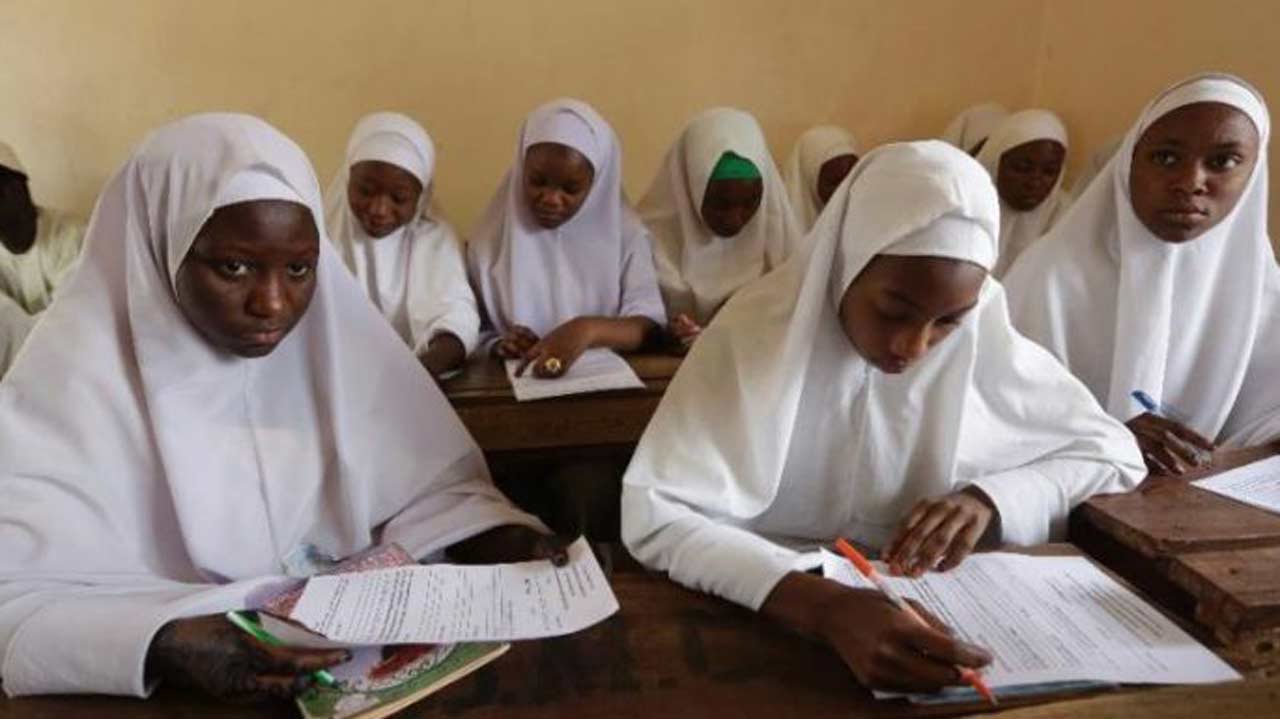In Kano State, many teenage girls, especially in the rural areas, usually stay away from school during their menstrual cycle and according to a report, many of these girls never return to classes due to the stigmatization attached to it as a result of poor understanding of the processes.
This trend has been negatively affecting girls’ enrollment over the years. Statistics from the United Nations Children’s Fund (UNICEF) show that there are over 10.5 million out of school children in Nigeria of which, 60 per cent are girls.
- 1,834 Nigerians killed in road crashes in 3 months – NBS
- NIGERIA DAILY: The Tough Battle Before Presidential Candidates
The statistics also revealed that the majority of these out of school children are from northern Nigeria.
This, according to the statistics, coupled with other social vices, has given rise to the current education crisis in Nigeria which is directly affecting children across the country. Some children are more likely to be affected than others, especially girls.
It was however discovered that a greater percentage of girls who had wanted to be in school couldn’t due to issues surrounding menstruation. The onset of menstruation means a new phase to adolescent girls, it is also a new vulnerability in their lives and yet many adolescent girls face stigma, harassment and social exclusion during menstruation while in school.
Moreover, these adolescent girls usually couldn’t withstand the stigma or harassment and as such, they believe the only option for them is to quit. This has far-reaching consequences for millions of people. It restricts their mobility and personal choices. It affects attendance in school and participation in community life. And it compromises their safety, causing additional stress and anxiety. These challenges are particularly acute in humanitarian crises.
In view of the negative impact such a trend has on girl’s educational development, UNICEF through the Girls’ Education Project 3 (GEP3) funded by the Foreign, Commonwealth and Development Office (FCDO) of the UK, has developed some measures in ensuring the girl child education development, one of which is the menstrual health and hygiene intervention training for female students as well as provision of sanitary kits to schools.
The training is designed to increase confidence, knowledge and skills as well as improve access to materials and facilities for adolescent girls to manage their menstrual safety and still maintain their dignity.
Amina Usman is a 15-year-old student of Guzai Girls Secondary School in Sumaila Local Government Area of Kano State. She said with the training, she now feels at home to discuss with her peers and their female teachers, adding that the teachers are even using their own resources to provide sanitary items to the students for free.
Another student of the school, 14-year-old Hussana Abdulrahman said many of her friends that quit school had returned because they now have confidence and also believe that experiencing their periods doesn’t mean they have done something wrong.
Similarly, the principal of Sumaila Gabas Secondary School, Ado Yusuf Sumaila, revealed that with the introduction of the various interventions of which the menstrual hygiene is paramount, over 100 girls have so far returned to school, adding that more are on the way.
It was also reliably gathered that there was a recorded increase in enrolment in the 300 schools that have benefited from the intervention across the state and the number is said to have been increasing tremendously.
It was also revealed that some of the factors that have contributed to the increase included the training of 300 School-Based Management Committee (SBMC) members as well as the inclusion of females in the SMBCs, and schools were supported through the Girls’ Education Project 3 to developed School Emergency Preparedness and Response Plans to mitigate the impact of potential and actual threats on schools among other interventions.
The development is said to have restored the girl’s confidence and convenience in their quest for knowledge.
Meanwhile, every 28th of every May has been set aside as Global Menstrual Hygiene Day (MHD). It is an annual awareness day to highlight the importance of good menstrual hygiene management (MHM) at a global level.
It was initiated by the German-based Non-Governmental Organization WASH United in 2013 and observed for the first time in 2014.
It was also gathered that in developing countries, women’s choices of menstrual hygiene materials are often limited by the costs, availability and social norms. Moreover, adequate sanitation facilities and access to feminine hygiene products are important but opening discussion and making adequate education available for women and girls is of equal importance.
Research has found that not having access to menstrual hygiene management products can keep girls at home from school.

 Join Daily Trust WhatsApp Community For Quick Access To News and Happenings Around You.
Join Daily Trust WhatsApp Community For Quick Access To News and Happenings Around You.


